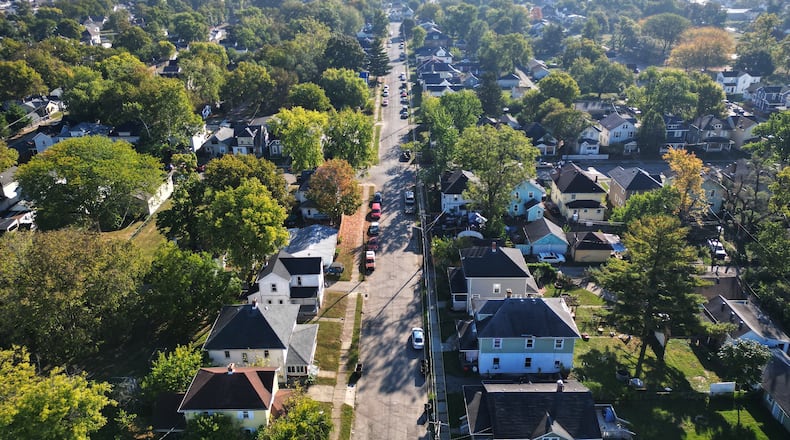One resident said her mother’s values have gone up 55%.
“It’s not going to be a bleed, it’s going to be a slaughter,” she said. “And this will create things that nobody is going to be able to cope with, in a big way.”
Nix sounded the alarm last spring when average property value increases were at 24%. That number ballooned to 42% and now is 37%. The highest median increase is in Monroe at 41% and the lowest is 25% in the sliver of Sharonville that resides within the county. Fairfield will also have a median increase of 40% and in a dozen of the tax districts the hikes are 35% or more.
Butler County led the charge to get the increases cut, and the proposed House bill, HB 187, passed out of the state House and onto the state Senate last Wednesday, when the Middletown forum was held. If it makes it to the governor’s desk and he signs it, the average increase will drop to around 25%.
Nix has town halls scheduled for the rest of the month in Fairfield, Hamilton, Oxford and West Chester Twp. from 7 to 8:30 p.m. Values are skyrocketing 109% for agricultural properties, and a forum will be held exclusively for those residents Nov. 9 at the Board of Elections complex in Hamilton.
Nix told the Journal-News about 100 residents attended the Middletown forum. On hand were state Rep. Thomas Hall and state Sen. George Lang — who have been pushing legislation to fix the problem — and some of Nix’ staff. The Middletown townhall can be viewed at https://youtu.be/nEkcPIkfTfk.
“As historic inflation wreaks havoc on the real estate market, taxpayers are rightly concerned about increased property taxes and need answers to their questions,” Nix said. “These town halls provide residents with an opportunity to learn what’s happening and to discuss the challenges we all face in today’s housing market.”
Value increases were based largely on sales data from 2022, which local officials say were unfairly skewed by pandemic-induced inflation and other ill effects of the historic crisis. The new law would require an equally weighted three-year average and give local auditors more control in the reevaluations, among other provisions.
Nix’ Director of Real Estate Mike Stein said property taxes won’t increase to the degree values are jumping, but in Middletown taxes will rise an estimated 20% to 30% because Middletown — and seven of the other 10 school districts — are at the 20-mill floor.
Ohio law provides special protection for school funding. It provides a minimum millage level for school districts that rates cannot fall below. Once a district’s total current expense millage is reduced to 20 mills, it cannot be reduced any further, so tax revenues grow as property values increase.
“In the case of Middletown City Schools, they’re at the 20-mill floor,” Stein said. “So it’s a dollar for dollar increase on that 20 mills of valuation.”
He said tax increases for property owners in the Fairfield and Lakota school districts are estimated at 10% to 14% because of the 20-mill floor factor.
Lang outlined all the efforts he and Hall and others have made to pass the “band-aid” bill and plan longer term solutions through the bi-partisan committee, that was authorized in the state budget to study tax reform.
He noted if HB 187 becomes law there is a three-year sunset clause, or essentially a deadline for the legislature to make real change. He said he favors capping property value hikes at the rate of inflation, with a “factor for population growth.”
“But it’s not going to be a quick easy fix,” Lang said.
“Senator, with all do respect,” one man said, “the pressure is not on you, the pressure is on us who are paying this increase.”
Both Hall and Lang gave the crowd their personal cell phone numbers and encouraged everyone to reach out to the governor’s office and other state legislators to encourage reform and more specifically to get HB 187 signed into law.
“The best thing you can do is reach out to the governor’s office, the more they hear from the people the better it is for us...,” Hall said. “A lot of this comes from the ground, anything you can provide helps our story when we’re telling our story in Columbus to not only our colleagues but the governor.”
Upcoming town halls will be held from 7 to 8:30 p.m. at the following locations:
- Oct. 17 Fairfield City Council Chambers, 5350 Pleasant Avenue
- Oct. 18 West Chester Twp. boardroom, 9113 Cincinnati-Dayton Road
- Oct. 24 Hamilton City Council Chambers, 345 High Street
- Oct. 30 Oxford City Council Chambers, 118 W. High Street
About the Author

